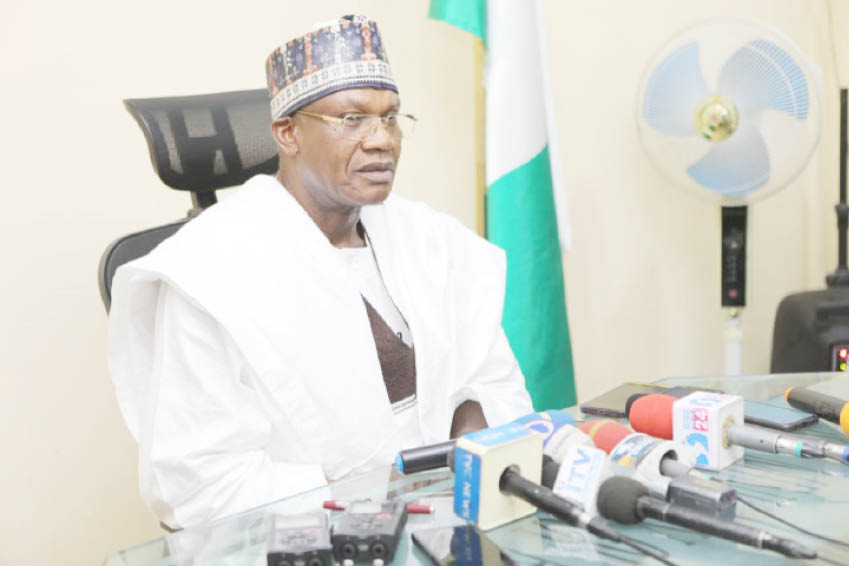The issue of enforcing 18 years as the entrance age into tertiary institutions as stipulated in the National Policy of Education has remained a matter of concern as parents and stakeholders have roundly rejected it.
While the National Policy on Education stipulates that a child should begin primary one at the age of six, spend six years in primary school and move to junior secondary school at the age of 12, spend three years, before moving to senior secondary school at the age of 15, to spend three more years and leave for university at the age of 18, this aspect of the law has been flouted for years and the plan to reinforce it by the present government is being resisted from some quarters.
Recently, while the Minister of Education, Prof. Tahir Mamman, was monitoring the 2024 Unified Tertiary Matriculation Examination (UTME) he discovered that some of the candidates taking part in the examination were below 18 years. He stated that they had not attained the age at which they could go to university, adding that it is time to enforce the 18 years admission age.
The minister, while at the JAMB National Policy meet, where the required admissible points into institutions are decided, insisted that the 18 years policy still stands. Stakeholders however rejected the decision, saying it will be unfair to deny candidates who have written the examination admission.
- Tinubu will transmit whistleblowing policy to National Assembly soon –Edun
- NAHCON Needs systemic reform – Presidency
He bowed to the pressure and accepted 16 years for the 2024 session admission only, adding that the 18 years policy will still be enforced next year.
Mamman, while speaking on a national television programme on Sunday, said the federal government had instituted the age policy for secondary school leaving examinations, setting the minimum age at 18.
He pointed out that underage candidates will no longer be allowed to sit for the West African Senior School Certificate Examination (WASSCE) and the Senior School Certificate Examination (SSCE), both prerequisites for advancing to tertiary education.
The directive affects the West African Examinations Council (WAEC), which administers the WASSCE, and the National Examinations Council (NECO), responsible for the SSCE. Additionally, Minister Mamman confirmed that the age limit to undertake the Unified Tertiary Matriculation Examination (UTME), overseen by the Joint Admissions and Matriculation Board (JAMB), will also be 18.
He said: “It is 18. What we did at the meeting that we had with JAMB (in July) was to allow this year and for it to serve as a kind of notice for parents that this year, JAMB will admit students who are below that age but from next year, JAMB is going to insist that anybody applying to go to university in Nigeria meets the required age which is 18.
“For the avoidance of doubt, this is not a new policy; this is a policy that has been there for a long time. Even basically, if you compute the number of years pupils and learners are supposed to be in school, the number you will end up with is 17 and a half – from early child care to primary school to junior secondary school and then senior secondary school. You will end up with 17 and a half by the time they are ready for admission.
“So, we are not coming up with a new policy contrary to what some people are saying; we are just simply reminding people of what is existing. In any case, NECO and WAEC, henceforth, will not be allowing underage children to write their examinations. In other words, if somebody has not spent the requisite number of years in that particular level of study, WAEC and NECO will not allow them to write the examination.”
According to him, early care is expected to last for the first five years. Pupils are expected to begin primary one at the age of six, spend six years in primary school and move to junior secondary school at the age of 12, spend three years, before moving to senior secondary school at the age of 15, to spend three more years and leave for university at the age of 18.
The announcement, however, has been generating a lot of arguments; some supporting for it and others rejecting it, saying it is not sustainable and asked the government to desist from enforcing it.
An educationalist, Michael Sule, said enforcing the policy is not possible because it would affect many students and that will worsen their performance of students academically.
“If you go to many schools, in the Senior Secondary 3 class, you can hardly get a handful of students who are 18. You cannot tell a child who has gone through school and taken all exams to arrive to the last class that he is underage and cannot sit for WAEC and NECO,” he said.
Sule said when such a child stays at home for two years, he must have lost all he learnt because of the delay.
He said the federal government has the right to implement policies but it cannot do it anyhow it wants.
He said: “If such policy is to be implemented, the federal government should start by checking out how it will impact on the education sector. Now we have age limit to get employed and let’s not forget that interference, like strikes, which affect the calendar among other things. So you want a child to be 18 to write WAEC and probably get admission by 19 years and graduate by 24 or 25 years, serve for one year and after you will say age limit to get employed into some service is 25 years, this is not possible.”
He however said if the federal government wants to enforce such policy, it should” start from the entrance stage like primary one, not when a child has passed through all the classes and you stop him from writing examination.
A parent, who wants to be identified as Modupe, also said it is not going to work.
She said there are videos of much younger children in other places doing great things, “yet someone still wants to push these children backwards with this their talent, no way.
“This will not work, my son will write WAEC at age 16. He is in government school and not private school. Go to their class you can hardly see any child that is 18 years so this policy would not work,” she said.
For Rasheed Yusuf, another parent, the policy is not well thought out. “What guarantee or plan does the government intend to put in place to ensure the students complete their education in record time?
“How do we explain a child that spends six or eight years pursuing a course of four years in the university and still has to go for youth service, then the employer will request for a maximum entry age of 26 years, just like Access Bank used to do.
“Government should rather improve the quality of education through provision of qualitative teaching and improved school environment. The age of the students has nothing to do with the fallen standard of education. It is looking like blaming the students for not learning what was not taught by the teachers,” he added.
However, a child and family well-being advocate, Barrister Hannatu Enwemadu, told Daily Trust that the announcement of the age policy for secondary school leaving examinations is a commendable move towards safeguarding the mental health and academic integrity of Nigerian students.
Enwemadu, who is the Executive Director of Mother’s Love Initiative, said by setting a minimum age of 18, the government aims to alleviate undue pressure and stress on young learners, allowing them to develop at a more natural pace.
“While this decision may have immediate implications for underage candidates, it is essential to consider the long-term benefits. The government must implement comprehensive measures to support students aged 16-17, such as alternative educational pathways, vocational training, or bridging programmes. This will ensure a smooth transition into higher education or the workforce,” she said.
Mrs Hannatu maintained that raising awareness about the negative effects of admitting underage children into school is paramount, saying that educational institutions, stakeholders and the Nigerian population should be sensitised on the importance of age-appropriate curriculum and support systems.
“By promoting a culture of age-appropriate education, Nigeria can create a more conducive learning environment for its young people,” she said.
She said clarity is key and to avoid ambiguity and ensure effective implementation, the government must clearly articulate the age policy in black and white to prevent misunderstanding and ensure that all relevant agencies, including WAEC, adhere to the new guidelines.
By providing clear guidelines, the government can minimise confusion and prevent potential damage to the educational system.
“The age policy for secondary school leaving examinations is a necessary step towards prioritizing the mental well-being and academic success of Nigerian students. While challenges may arise during implementation, the government can mitigate negative impacts by providing appropriate support measures and promoting awareness. By combining clear guidelines with a supportive environment, Nigeria can ensure a brighter future for all its students,” she said.
A teacher who does not want to be named said it is the right thing to do because students need to be mature to go to tertiary institutions
“I remember in our days, you cannot be admitted if you are not of the required age but because of the advent of private schools, this policy has been thrown out because parents take their children to school before the age of one and they graduate before they get to 15 years,” he said.
He said enforcing it at the entrance age would be better but government must also be intentional about it and also change some other policies that are likely to affect people, like putting age limit to gaining employment and others.
Reacting, the Chairman, Association of Model Islamic Schools, FCT chapter, Malam Yussuff Oriyomi, thinks the government should review its stand, saying, “I suggest they allow 17 years to write O’level and UTME.”
“If you look at the trajectory, a 6 year old in Primary 1, will be 17 at SS3 depending on the month of birth. Given that schools resume in September for a new session, I expect a 1 year flexibility to accommodate the monthly variations in birth dates,” he said.
He said insisting on 18 years would mean some students would almost be 19 before they can sit for O’Level.
He said the implementation should be from entrance age, to achieve the overall objective of the policy, and 17 is a better age for O’level, not 18
Oriyomi advised the government to also insist on Primay 6 class as the terminal class for primary education, adding that, “They should equally stop students from writing O’ level exams while in SS2. The above steps will help ensure the students are mature and at least 17 years by the time they are writing O’level in SS3.”

 Join Daily Trust WhatsApp Community For Quick Access To News and Happenings Around You.
Join Daily Trust WhatsApp Community For Quick Access To News and Happenings Around You.


